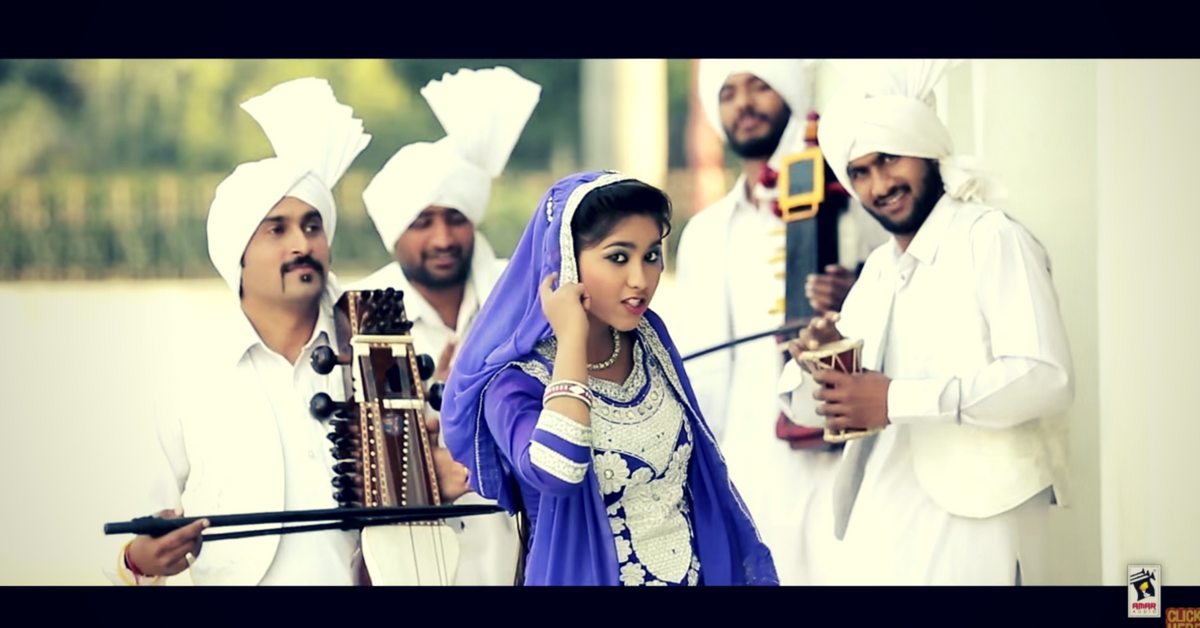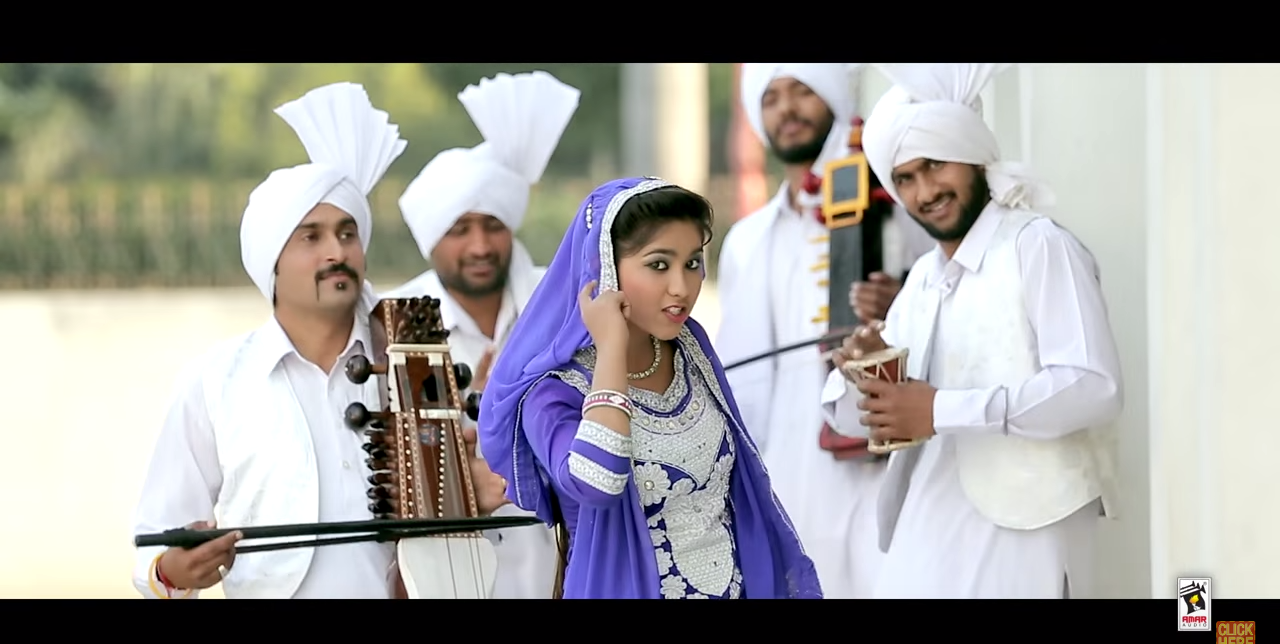How 18-Year-Old Ginni Mahi of Punjab Is Singing to End Social Inequality
In response to the burgeoning discrimination faced by people of the Dalit community in various parts of the country, an 18-year-old Punjabi pop artist named Gurkanwal Bharti or Ginni Mahi is using her immensely popular songs to demand justice and equality.

In response to the burgeoning discrimination faced by people of the Dalit community in various parts of the country, an 18-year-old Punjabi pop artist named Gurkanwal Bharti or Ginni Mahi is using her immensely popular songs to demand justice and equality.
She has over 20,000 followers on Facebook and about 1 lakh people worldwide watch her videos. Catch a couple of lines of her anthems and you’ll realise that they assert the Dalit identity with a startling amount of strength.

A resident of Abadpura town in Jalandhar, Ginni started performing music at the age of 13 and she aspires to join the glitzy world of playback singing. According to reports, her family supports her and listens to all her songs before approving them for release. Belonging to the Chamar caste, she started her career by singing hymns devoted to Guru Ravidas, a spiritual leader from Punjab who was a part of the Chamar community himself and was a patron of the form of spirituality that considers devotion to be more important than lineage. Traditionally, people of this caste worked with leather and were considered untouchables.
Guru Ravidas used to say that social divisions of caste, class and gender should be done away with for the pursuit of personal and spiritual freedoms, and Ginni follows his teachings.
She released her first solo album, Guraan di Diwani last year and her second album named Gurupurab hai Kanshi Wale Da, was released in February this year.
Her song Dangerous Chamar encourages the Dalit community to unify against forces of social inequity and economic deprivation. In an oft-repeated anecdote, she told NDTV that an obnoxious conversation with a classmate motivated her to write that song. A girl asked Ginni about her caste and on hearing that she belongs to the Chamar community, she said — “Oh! I should be careful. Chamars are danger, they say.”
Ginni successfully turned that casteist slur into a badge of pride. One of the lines in the song goes, “Kurbani deno darrde nahin, rehnde hai tayyar, haige asle to wadd Danger Chamar (the one who is not scared to sacrifice, the one who is the real thing is Chamar).”
Her unabashed way of owning words and changing their definition to fit her ideology is remarkable. She asserts that the word Chamar can be broken into three parts — chamda translates to skin or hide, maans translates flesh or meat and rakht translates to blood. These three components form a living organism and she is of the firm belief that the rest of the community should accept the Chamar tag without feeling humiliated.
It goes without saying that Dr. Ambedkar features in her videos as the patron to whom her songs are dedicated. Haq and Fan Baba Sahib Di are two such remarkably popular numbers. “Main thi Babasaheb di, jine likheya si samvidhaan (I am the daughter of Babasaheb, who wrote the Constitution),” is a line from Fan Baba Sahib Di.
The song further goes on to describe him as the emancipator of the downtrodden.
“When I sang Mein fan huun Baba Sahib di, in praise of B.R. Ambedkar, it was not to cash in on the popularity of the man who enjoys immense respect in our community, but because he talked about human values,” she told India Today.
Chamar pop and Ambedkar folk are popular music sub-genres among the Dalits in Punjab, and Ginni is the latest addition to those groups of singers. One of the most amusing aspects of her music is that apart from being heavily influenced by Punjabi folk music, it also has traces of trap music and a healthy dose of EDM.
But caste-based discrimination is not the only social evil that she croons against. She also addresses the issue of female foeticide in her song, Ki Hoya Je Main Dhee Hain. Ginni now wants to first finish college and pursue a PhD. She is keen on following Ambedkar’s eternal message of using education to mobilise and empower.
Like this story? Or have something to share? Write to us: [email protected], or connect with us on Facebook and Twitter (@thebetterindia).
This story made me
-
97
-
121
-
89
-
167
Tell Us More
We bring stories straight from the heart of India, to inspire millions and create a wave of impact. Our positive movement is growing bigger everyday, and we would love for you to join it.
Please contribute whatever you can, every little penny helps our team in bringing you more stories that support dreams and spread hope.


















